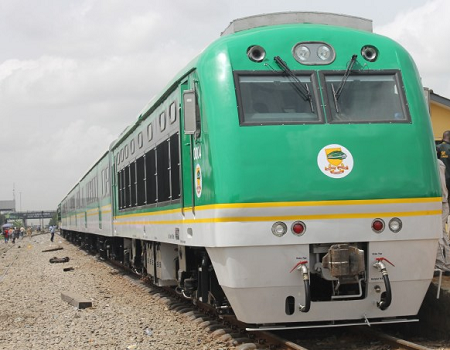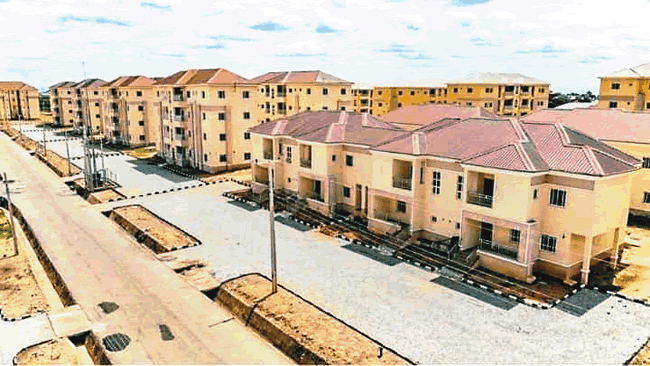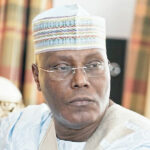If various proposals in the draft final report of the Strategic Regional Development Plan (SRDP) for the South-West Geo-Political Zone (2021-2041) are anything to go by, the region is on the track to promote balanced development in the six states within the district if effectively implemented. DAYO AYEYEMI, reports:
It’s no longer news that the consortium of consultants saddled with the responsibility of preparing the Strategic Regional Development Plan (SRDP) for the South West Geo-Political Zone (2021-2041) presented the Draft Final Report to some stakeholders in Ibadan, Oyo State, last week.
The major takeaway is the confidence expressed by the stakeholders concerning various proposals on transportation, trade, electricity, security, water supply, pollution control, housing development and economic development itemised in the document, to turn around the fortune of the South-West zone of the country.
The stakeholders, comprising senior lecturers in the university, consulting town planners, government’s officials and policy makers are eager to see the adoption of the 20-year blueprint and its effective implementation.
The stakeholders, including the consultants, who converged on the International Conference Centre, University of Ibadan, Oyo State, suggested funding options for the implementation of proposals in the document.
They also want the government to identify or set up a specific agency for effective implementation of the strategic regional development plan.
While appreciating the Federal Government and the consultants for doing a good job in preparing the SRDP for the zone, Professor Bolanle Wahab advised that actors that will implement the proposals should be carefully identified and made responsible to their tasks.
Also, in their submission, the consultants also appealed to all stakeholders to ensure effective implementation of the plan for the betterment of the region and country at large.
The consultants, in their submission, listed budgetary allocation; Build Operate and Transfer (BOT); Build Own Operate and Transfer (BOOT); Build, Lease and Transfer (BLT); Design, Build, Finance and Operate (DBFO); The Design, Construct, Manage, and Finance (DCMF); Bond Issuance and Development Finance Institutions (DFIs) as funding options available for effective implementation of the plan
The Draft Final Report, which was presented in Ibadan, was the review of the existing Strategic Regional Development Plan (2005-2010) for South-West Nigeria, which was awarded by the Federal Government through the Ministry of Works and Housing to Noble Concepts and Associates in 2005 to Bulamari Global Services with Tade Planning Services and Rural-Urban Development Workgroup as Technical Partners.
The blueprint contains various proposals to promote a balanced development within the South-West geo-political region and reduce regional disparities between the different regions in the country.
The consultants divided the implementation of the document into three phases: Short Term- 2021-2028; Medium Term – 2028-2037; and Long Term -2037-2041
The five states in the South-West geo-political zone comprise Lagos, Ekiti, Ogun, Ondo, Osun and Oyo.
Chairman, Lagos State Chapter of the Nigerian Institute of Town Planners, Omotayo Awomosu, agreed with the submission of the consultants that railway should be removed from the exclusive list so that states are free to construct railways in their states as they deem it.
Rationale
Speaking on behalf of the Minister of Work and Housing, Mr Babatunde Raji Fashola, the project coordinator, Dr David Olakunde, said the effort of awarding the preparation of the SRDP for South-West geopolitical zone to the consultants was to advance the Federal Government’s decision of producing the National Physical Development Plan for the country.
“As you are most probably aware, the Federal Government through Federal Ministry of Works and Housing commissioned a consortium of consultants of Bulamari Global Services, Tade Planning Services and Rural-Urban Development Workgroup to prepare the Strategic Regional Development Plan (SRDP) for South-West Geo-Political Zone, under her technical assistance initiative in 2021.
According to him, the SRDP aims at promoting a balanced development and reducing disparities within the zone as well as between it and other parts of the country.
In doing this, he explained that the blueprint sought to establish widely shared vision for the future development of the region; make best possible use of the natural endowments and the human potentialities of the region to improve the quality of life; examine the resource base of the region and identify its strategic and comparative advantage for the sustainable development of the region.
Besides, he said it would attract active participation of many government and non-government stakeholders for its preparation and implementation.
“From the foregoing, and to achieve sustainable development of the zone, the harmonisation of its social, economic and environmental needs through appropriate planning and management of land and its resources is necessary.
“This is what the Draft Final Report of the Strategic Regional Development Plan has exactly come up with. The report is now ready for informed knowledge sharing and feedback on the proposals put forward. It is now time for us as critical stakeholders who will be affected or affecting the proposals of this technical study to make critical contributions to it,” he said.
He maintained that the forum was very critical in finalizing the report, pointing out that stakeholders were present in order to discharge the huge task of helping to refine the plan through their comments, suggestions, critical observations and recommendations.
“Therefore, as frontline stakeholders in South-West geo-political zone, we are enjoined to provide the vital inputs that will improve this draft report so that the final document would be the springboard for engendering harmonious development of the region,” Olakunde said.
He reaffirmed the commitment of his ministry to delivering a technically sound and acceptable plan that will ensure the sustainable development of the region. He solicited active participation in the engagement to facilitate a blueprint that will ensure sustainable development of the South-West geo-political zone.
Dignitaries at the forum included the Oyo State Commissioner for Ministry of Lands, Housing and Urban Development, representatives of other states in the South-West geo-political zone, Chairmen and executives of state chapters of the Nigerian Institute of Town Planners; Federal Controllers of Federal Ministry of Work and Housing (Housing Sector) in the South-West geo-political zone, Directors/Heads of Town Planning Ministry, Department and Agencies (MDAs); representatives of the academia and delegates.
The Project Director, Dr David Olawale, a town planner, said the plan would be helpful in the ongoing process of the preparation of the National Physical Development Plan (NPDP).
According to him, the preparation of the regional plan was to consider development patterns, resource base and comparative advantages of different regions where such plans exists.
He explained that the Revised Strategic Regional Development Plan (SRDP) for South-West Zone (2021-2041) has identified the major challenges facing the region and set framework for how to overcome them.
The blueprint includes policies to unlock South-West zone’s potential, protect and enhance the quality of both the built and natural environment as well as making effective use of resources available within the region for its growth and development.
“To highlight a brief update on this project, the team has submitted three different reports as stated in the contract agreement namely; Inception Report, Interim Report after field work/data gathering (both were evaluated by the client) and Draft Final Report under consideration which will dovetail to the Final Report after stakeholders’ engagement and consideration,” Olawale said.
Proposals
The draft final report contains plan proposals for economic growth and development within the each state of the south-west zone in the next 20 years.
This covers economic activities, mineral resources, market development, industrial sector, social protection, poverty reduction, road, rail, water and air transportations, electricity, housing development, water supply, solid waste management, communication, education, health, youth development, pollution control, recreation and tourism and waste to wealth, among others, within the zone.
In their submission, the consultants said there should be specific policy documents and designs for each of the types of transportation in each of the state in the region.
The report sets priority for sustainable transport corridors that will be a blend of vehicular and active transport by making provision for private and public transport facilities, cycling paths, walkways, pedestrian-friendly streetscape and availability of street furniture
The report also seeks policy formulation for effective transportation and traffic management across the states of the geopolitical region.
On economic activities, the consultants talked about harnessing the human and material resources for the region’s economic development and growth; reduction of impediments to trade and commerce such as multiple taxation, touting, policies; leveraging the strong and strategic engineering infrastructure being deployed by the National Agency for Science and Engineering Infrastructure (NASENI); adoption of best practices, scientific knowledge, ICT to develop the relevant human capacity to meet current developmental demand; and the need to mainstream the informal sector within to drive the regional economy and facilitate the desired economic growth.
On mineral resources, they proposed the enforcement and improvement of existing legislations towards enhancing mining activities in the region.
While seeking the collaboration between the states and the federal government in mineral exploitation and exploration, they also proposed periodic environment sensitivity mapping including environmental auditing.
“Identifying and punishing the traditional rulers and community leaders allegedly colluding with illegal miners,” the report read, adding that civil society and community based organisations must continue to hold both state and non-state actors accountable for unethical mining practices in the region.
They also envisaged proper planning for every market being developed and rehabilitation of the existing ones, adding that specialised regional markets should be established across the region, like the Regional Timber Market in Ondo State
The draft final report makes case for the provision for micro-finance to support the commercial activities of the traders in the markets; provision of adequate security services, while harnessing the potentials of traditional markets toward sustainable regional development of the zone.
On plan proposal for industrial sector, the report seeks careful identification of what can be produced with the available local raw materials, adding that investment opportunities embedded in development strides such as Special Economic regions (SEZ), Free Trade regions (FTZ), industrial regions, Special Agro-Industrial Processing region and construction of Inland Dry Port should be harnessed.
The report contained the provision of infrastructure that will attract industrial establishments; formation of financial institutions such as micro finance banks that will support development of small-scale industries; urging the region to take advantage of the numerous Research Institutes available.
On electricity, the consultants suggested optimising efficiency of federal power projects in the region; decentralisation of generation and distribution such that the region can generate and distribute enough power locally without dependence on the national grid; adding that there should be an adoption of optimum energy-mix; establishment of local manufacturing facilities for solar panels, batteries, charge controllers and inverters; android that wind turbines should be deployed where appropriate for off-grid power.
On water supply, they suggested that state water boards or corporation should be resuscitated and their capacity enhanced to ensure adequate water supply to various urban sector of human settlements;
“There should be the construction of new dams and waterworks and expansion of the existing ones for them to be adequate for water supply;
“The local governments should be empowered to also provide mini water works and drilling of boreholes at industrial scale to complement water supply from the water corporations across the states; and there should also be legislation to control indiscriminate drilling of boreholes across the cities of the region in order to avert the grievous environmental implication that could be associated with the process,” the draft final report read.
READ FROM ALSO IGERIAN TRIBUNE
WATCH TOP VIDEOS FROM NIGERIAN TRIBUNE TV
- Let’s Talk About SELF-AWARENESS
- Is Your Confidence Mistaken for Pride? Let’s talk about it
- Is Etiquette About Perfection…Or Just Not Being Rude?
- Top Psychologist Reveal 3 Signs You’re Struggling With Imposter Syndrome
- Do You Pick Up Work-Related Calls at Midnight or Never? Let’s Talk About Boundaries






